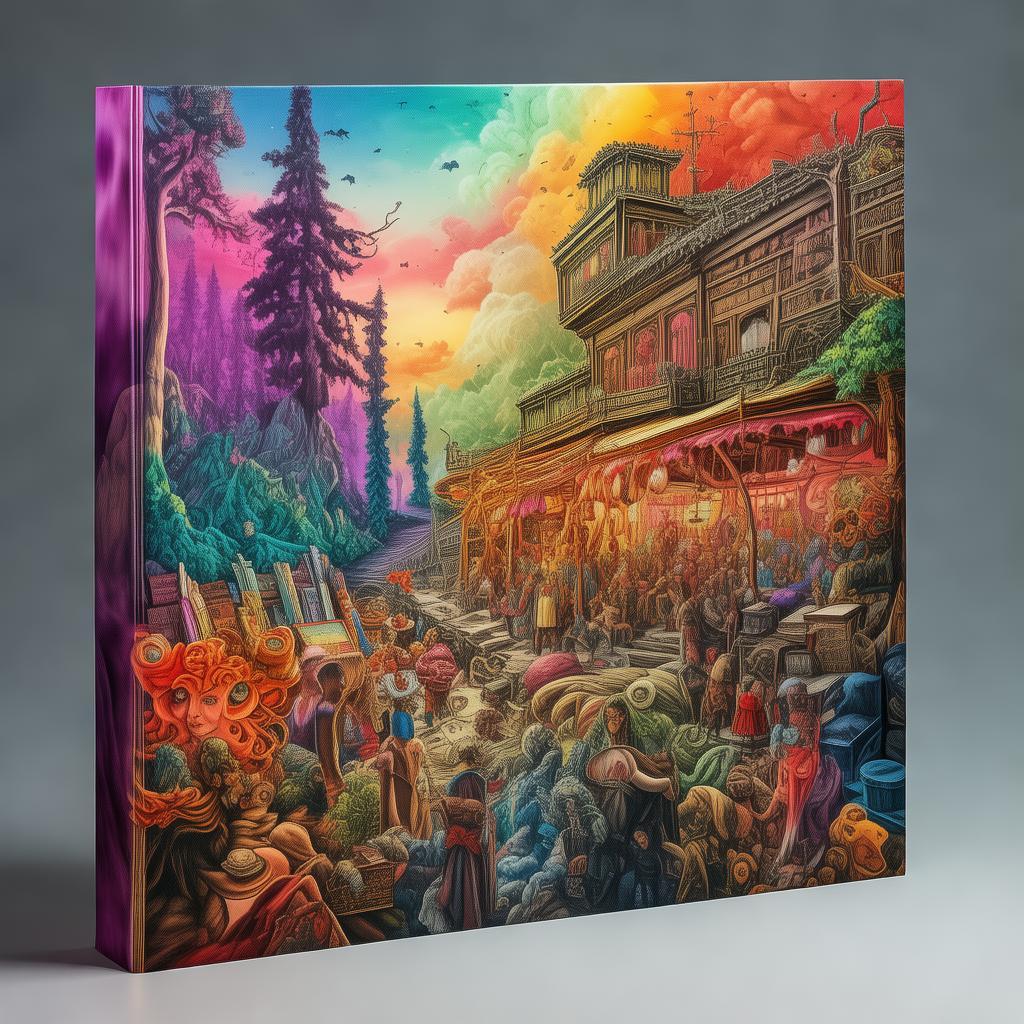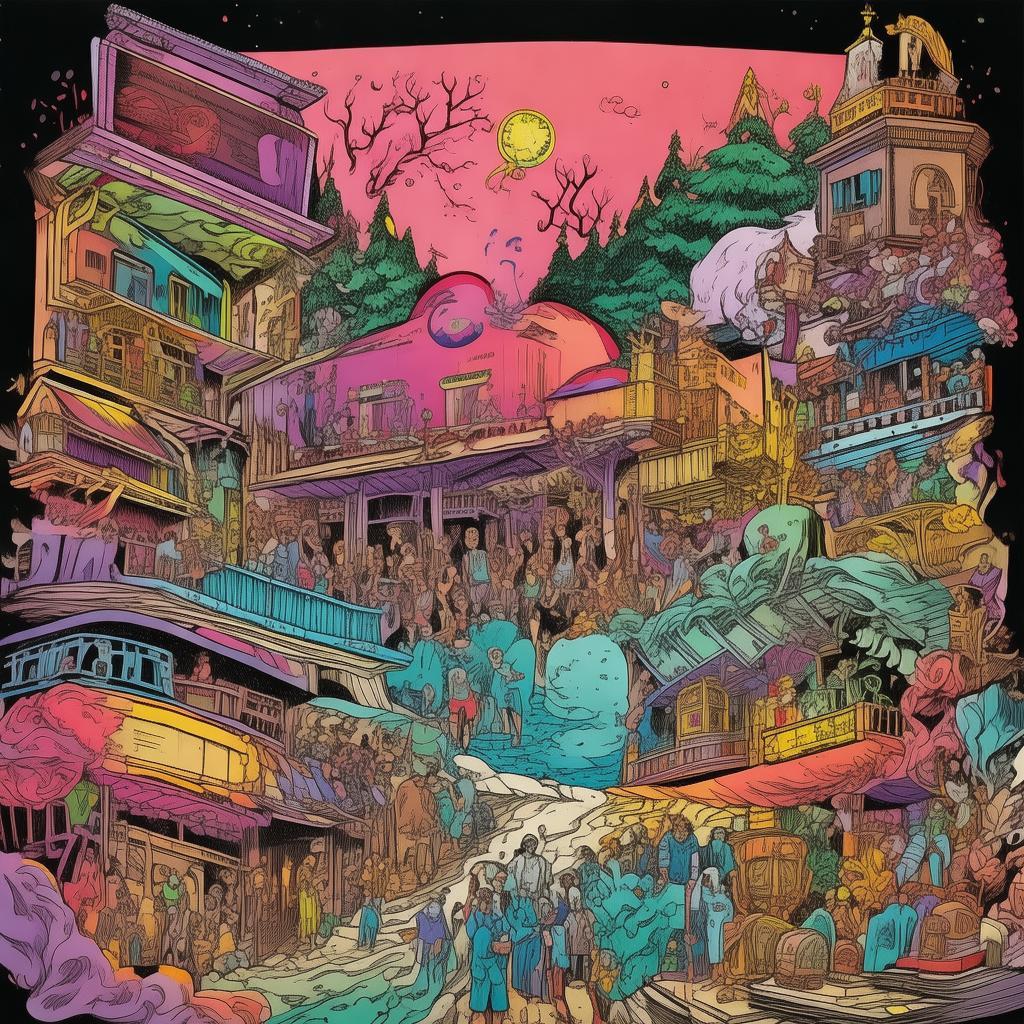Whispers of the Past: The Lost Poem of Laozi
In the heart of the ancient Chinese countryside, where the whispering winds carry the echoes of ancient wisdom, there lived a young scholar named Ming. Ming was known for his insatiable thirst for knowledge and his unwavering dedication to the study of the Tao. His life was one of solitude, spent in the quietude of his family's library, where the scrolls of ancient texts lay in wait for his perusal.
One day, Ming stumbled upon a cryptic scroll hidden in the dusty recesses of the library. The scroll was adorned with intricate carvings and contained a single, enigmatic line: "The lost poem of Laozi holds the key to the universe." Ming's heart raced with excitement and curiosity. The poem, it was said, was a collection of Taoist teachings that had been lost to time. Its discovery would not only enrich his own understanding of the world but also shed light on the ancient secrets of his culture.
Ming knew that the journey to find the poem would be fraught with peril. The poem was said to be guarded by ancient spirits and hidden in a place where even the bravest of souls feared to tread. Undeterred, Ming resolved to embark on the quest, determined to uncover the truth behind the cryptic scroll.
The first leg of his journey took him to the ancient city of Chang'an, where the whispers of the past seemed to hang in the air. Ming sought the counsel of the city's most learned scholars, hoping to uncover any clues that might lead him to the poem. Among them was an elderly monk named Hua, whose eyes held the wisdom of centuries.
"Scholar Ming," Hua said, his voice as gentle as the rustling leaves of autumn, "the path to the lost poem is not one of mere physical travel. It is a journey into the heart and mind, where the answers have always resided."
Ming, though puzzled, followed Hua's advice and began to delve deeper into the study of Taoist philosophy. He spent countless nights meditating, searching for the inner peace that was the essence of the Tao. It was during one such meditation that he experienced a vision, one that would change his life forever.
In the vision, Ming saw the poem in all its glory, a scroll of words that shimmered with an otherworldly light. But as he reached out to touch it, the vision faded, leaving him with only a faint memory of the poem's contents.

Determined to find the poem once more, Ming set out on the second leg of his journey. He traveled through the mountains, across rivers, and through desolate wastelands, facing numerous challenges along the way. He encountered bandits, who sought to take advantage of his quest, and he navigated treacherous terrain, where the path was both literal and metaphorical.
It was during his journey that Ming discovered that the poem was not just a collection of words but a guide to the universe, a key to unlocking the secrets of life and death, of creation and destruction. The poem was a living entity, one that could only be found by one who was pure of heart and true to the path of the Tao.
As Ming continued his quest, he encountered an ancient temple, hidden from the world by the mists of time. The temple was guarded by a series of riddles and trials, each designed to test his understanding of the Tao and his resolve to uncover the poem.
In the final trial, Ming was presented with a choice: he could either take the poem and leave the temple, or he could leave it behind and continue his search. Knowing that the poem was a guide rather than a mere collection of words, Ming chose to leave it behind, understanding that the true path of the Tao was one of self-discovery and continuous growth.
As Ming stepped out of the temple, he felt a profound sense of peace. He realized that the poem was within him all along, that the journey had been an exploration of his own soul. With this newfound understanding, Ming returned to his family's library, where he began to write his own interpretations of the Tao, a testament to his journey and the wisdom he had gained.
In the end, Ming's quest was not just about finding the lost poem of Laozi; it was about finding himself. His journey had taught him that the true secret of the Tao was not in the words of ancient texts but in the quietude of the mind and the harmony with the world around him.
And so, Ming lived out his days as a teacher, sharing the wisdom he had gained on his quest, and leaving behind a legacy of knowledge that would endure for generations to come.
✨ Original Statement ✨
All articles published on this website (including but not limited to text, images, videos, and other content) are original or authorized for reposting and are protected by relevant laws. Without the explicit written permission of this website, no individual or organization may copy, modify, repost, or use the content for commercial purposes.
If you need to quote or cooperate, please contact this site for authorization. We reserve the right to pursue legal responsibility for any unauthorized use.
Hereby declared.









